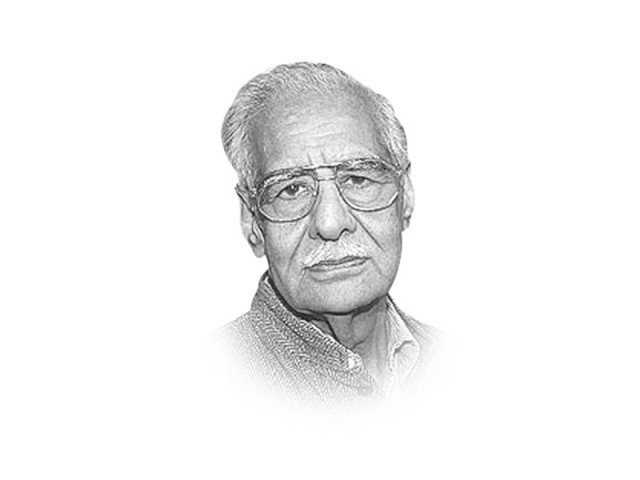The tragedy of Partition
If someone were to tell me that Hinduism is greater in generosity or that Islam emits more love, I would beg to differ

However, I crossed the border 32 days after independence. By then, the fury of killing and looting had subsided. I did not see Hindus and Muslims quarrelling or actually fighting. I saw the pain-etched faces — men and women, with their meagre belongings bundled on their heads and the fear-stricken children following them. Both Hindus and Muslims had left behind their hearth, homes, friends and neighbours. Both had been torn on the rack of history. Both were refugees.
The tragedy of Partition is too deep to be described in words. But to convert it into a Hindu and Muslim question is politicising the problem. Unfortunately, this will whip up hatred against Hindus, who were as much at the receiving end in Pakistan as were Muslims in India.
Why were the people, who coexisted for so many years, now killing each other? Nothing would be more futile than the effort to pin down who was responsible for the partitioning of the subcontinent. With the sequence of events stretching back for over six decades, such an exercise can only be an academic study.
History’s ‘ifs’ are at best hypothetical and at worst subjective. The Partition was like the Greek tragedy. All knew what was happening. Still they could do nothing to check it. The climate in the country had become too polluted to escape the carnage and the migration that came in its wake.
Has partition served the purpose of Muslims? I do not know. During my trips to that country, I have heard people saying that they are happy that at least they have “some place” where they feel secure, free of Hindu domination or Hindu aggression. But I feel that the Muslims as Muslims have been the biggest losers. They are now spread over three countries — India, Pakistan and Bangladesh. Imagine the influence that their numbers — their votes — could have commanded in the undivided subcontinent! They would have been nearly one-third of the total population.
I have returned disheartened from the Wagah-Amritsar border, not because there is no lessening of martial posture of soldiers at the sunset parade, but because of a new monstrosity that has come up there. The Pakistani authorities have projected figures in carving on boards to show how Hindus and Sikhs had killed and looted Muslims during the Partition. The reliefs have been displayed in such a way that they are visible only from the Indian side. They cannot be seen from the Pakistan side because the back of the reliefs are merely large bill boards.
The happenings depicted are offensive in expression and deprave in purport. They have been installed in the last two months, probably because the voice of peace with India is gaining strength in Pakistan and because nearly 50 people came to the border, the zero point, for the first time last year to light the candles since independence six decades ago.
Again, the reliefs put up at the border distort facts. Whatever brutalities shown happened on both sides. Hindus and Sikhs were victims in Pakistan and Muslims in India. It was the same sordid spectacle in the newly-born countries, neither less in brutality nor more in compassion. Women and children were the main targets.
If someone were to tell me that Hinduism is greater in generosity or that Islam emits more love, I would beg to differ. I saw the followers of the two religions killing in the name of faith. They were raising slogans of both “Har Har Mahadev” and “Ya Ali” while piercing swords or spears into one another. Some incidents were captured in the books which were published at that time. Aur insan mar gaya is the famous book by Ramanand Sagar and the short story Peshawar Express by the eminent Urdu writer Krishan Chander, to narrate events of how man dies when the Satan in him awakens. Then there are Sadaat Hasan Manto’s short stories in Urdu that tell how the two communities touched the depth of crime and callousness.
Published in The Express Tribune, August 15th, 2014.
Like Opinion & Editorial on Facebook, follow @ETOpEd on Twitter to receive all updates on all our daily pieces.















COMMENTS
Comments are moderated and generally will be posted if they are on-topic and not abusive.
For more information, please see our Comments FAQ